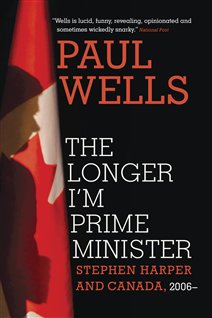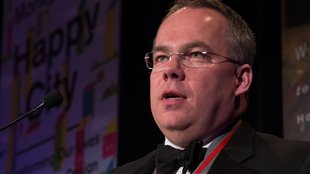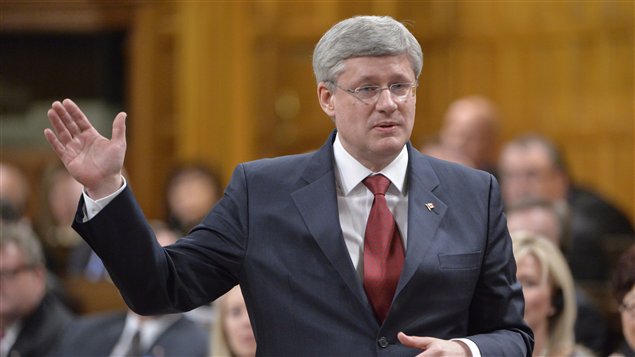
Veteran political journalist Paul Wells has won the $25,000 Shaughnessy Cohen Prize for his book The Longer I’m Prime Minister: Stephen Harper and Canada. The book is at times harshly critical of the currently governing leader, but the judges noted it “is never partisan or unfair” and that it is “impeccably researched, gorgeously written, and deeply insightful.”
Harper came to power in 2006 as the first conservative leader after a long line of liberals. He led two minority governments and, in 2011, won a majority. Wells thought it was time to write a history of him. “What I wanted to do was establish how he manages to keep winning and why he wants to win, why it’s important to him to hold power for so long.”
Harper wants to “correct decades of liberal rule”
Harper believes Canada has been led astray by decades of liberal dominance, says Wells, and he wants to undo that. “He wanted to correct decades of liberal rule with decades of conservative rule,” says Wells. “To some extent the real test of Harper will be what happens after he’s no longer the prime minister. Will the conservative party be a dynamic and competitive element in the political landscape?”
Harper made profound changes
Cutting the tax on goods and services was one notable change made by Harper, says Wells, and it will limit what future conservative governments can do. He adds there have been severe cuts in spending although it has been very difficult to find out exactly where those cuts have been made. Wells also notes foreign policy under Harper has changed to be one less focused on aid and more focused on military goals. And he says Harper has changed relations between himself and the leaders of the provinces by not meeting with them as previous prime ministers had done.

Harper “born for politics”
Harper loves the fight in politics, says Wells. “Harper is someone who was born for politics. To some extent he’s awkward in any other setting.” After sitting in the House of Commons yesterday, Wells noticed how remarkably contented Harper looked in the prime minister’s seat. He adds that Harper has a strong sense of who won’t vote for him and he spends no time worrying about them.
Freedom to write
Wells felt free and unconstrained in writing this book about the prime minister, noting no one ever tried to stop him and people close to Harper were helpful in talking to him about the prime minister. Given such a big change in Canada’s political landscape from years of liberal governing to years of conservative rule, he felt it was time to write about it.
Taking stock
“I think it’s important to take stock and try to explain how that happened and try and paint a portrait that’s sympathetic in a lot of ways, that tries to understand the guy, but also is at liberty to criticize him and to try to assess him in full…to try and get a longer term idea of what does this guy mean in the broad scope of Canadian history,” said Wells.
Wells, who is now political editor for Maclean’s magazine, was awarded the top prize on Wednesday in Ottawa, at an annual fundraiser for the Writers’ Trust of Canada, a group founded by Canadian authors to support writers and writing in Canada..
Other finalists who will receive $2,500 are:
- Margaret MacMillan for The War That Ended Peace: The Road to 1914.
- Charles Montgomery for Happy City: Transforming Our Lives Through Urban Design.
- Donald J. Savoie for Whatever Happened to the Music Teacher? How Government Decides and Why.
- Graeme Smith for The Dogs Are Eating Them Now: Our War in Afghanistan.







For reasons beyond our control, and for an undetermined period of time, our comment section is now closed. However, our social networks remain open to your contributions.